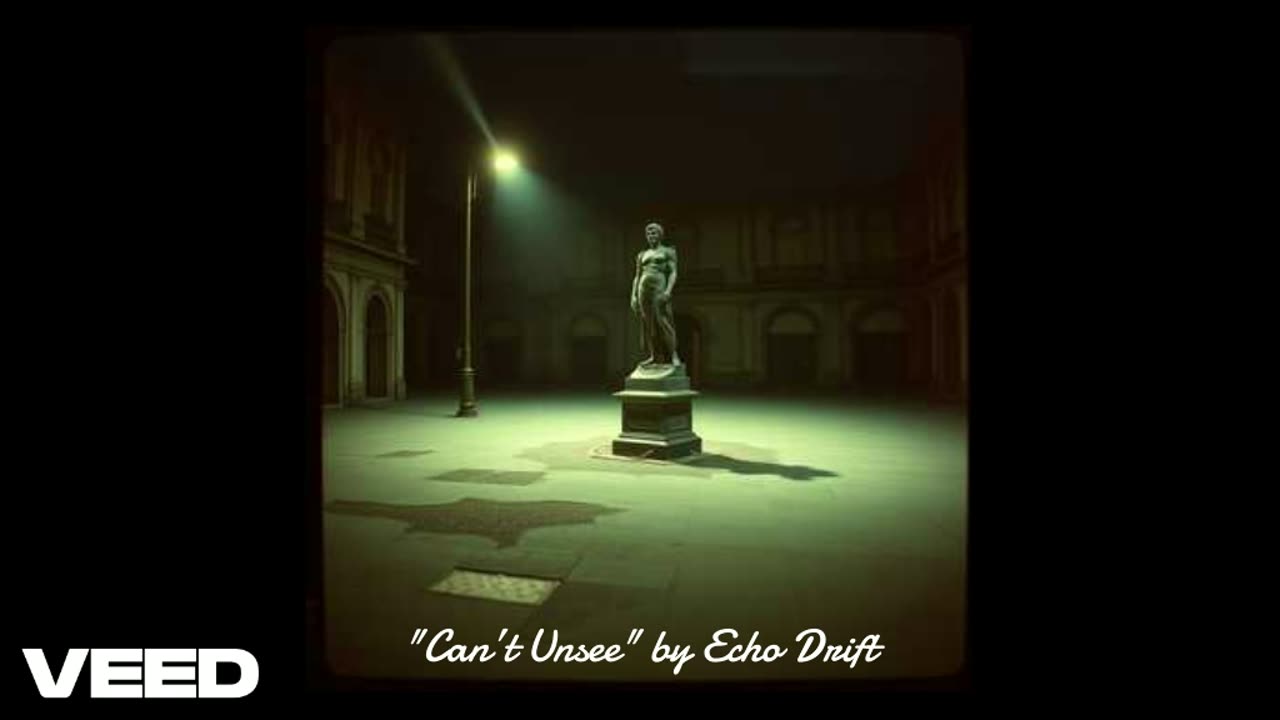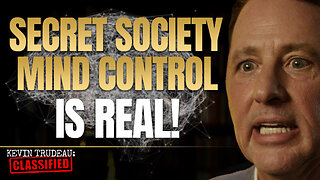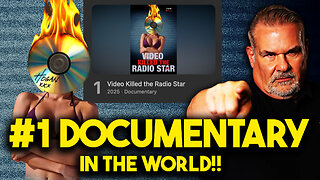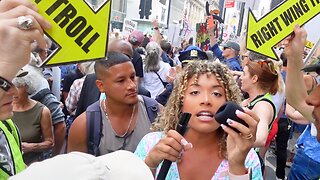Premium Only Content

"Can’t Unsee" by Echo Drift
"Can’t Unsee" is not a song—it’s a reckoning. In the hands of Echo Drift and lyricist Samuel E. Burns, this piece becomes less of a performance and more of a postmortem: of a leader, a nation, and perhaps most hauntingly, of collective denial.
From the very first lines—"Once you see it, / you can’t unsee"—the listener is warned. This is a journey into uncomfortable clarity. The lyrics don’t describe an event so much as they peel back its layers, revealing the rot beneath. Burns’s words are surgical, precise, and often devastating. A figure stands at the center of the poem—a man in power, a "shadow dressed in ceremony"—no longer commanding language, caught mid-thought, mid-self. The imagery is stark and elegiac. What’s most chilling isn’t what is said, but what is withheld: a nation pretending not to see what’s plainly visible.
What Echo Drift brings musically to this piece (assuming the tone follows the lyrics) is likely minimalist and brooding—atmospheric, even funereal. The song doesn't offer crescendos of hope or melodrama. It offers, instead, truth. And truth, as this work argues, is rarely convenient.
Burns draws a connection between personal decay and national erosion. “You can't build a country on illusion,” he writes. “Can't lead with a hollow man.” This isn’t just political commentary—it’s moral indictment. In a particularly haunting section, the lyrics shift to observe the silent complicity of others: “shielded by loyal hands / who knew better— / but said nothing.” It’s the silence after the fall that echoes longest.
The final lines are raw, intentionally fractured: “Become hole again. / Hole again. / Hole again.” It’s a powerful pun—"whole" becoming "hole"—emphasizing loss and absence. The repetition mimics the echo of a wound that hasn’t healed, a chant with no closure.
-
 4:13
4:13
New Wave Music
5 days ago"Island’s Grip" by Echo Drift
211 -
 LIVE
LIVE
LFA TV
1 hour agoLFA TV ALL DAY STREAM - THURSDAY 9/4/25
13,500 watching -
 1:16:35
1:16:35
JULIE GREEN MINISTRIES
2 hours agoLIVE WITH JULIE
29.9K70 -
 LIVE
LIVE
JuicyJohns
20 minutes ago🟢#1 REBIRTH PLAYER 10.2+ KD🟢
308 watching -
 LIVE
LIVE
Welcome to the Rebellion Podcast
12 hours agoDon3po is Live - WTTR Podcast Live 9/4
383 watching -
 13:43
13:43
The Kevin Trudeau Show Limitless
22 hours agoClassified File 3 | Kevin Trudeau EXPOSES Secret Society Brainwave Training
44.5K9 -
 LIVE
LIVE
The Chris Salcedo Show
12 hours agoAmericans Are Tired Of Leftists & Fake-GOP Who Cater To Them
612 watching -
 LIVE
LIVE
Game On!
19 hours ago $0.94 earnedFootball IS BACK! Cowboys vs Eagles Opening Night Kickoff!
3,111 watching -
 LIVE
LIVE
The Bubba Army
22 hours ago#1 Documentary IN THE WORLD! - Bubba the Love Sponge® Show | 9/04/25
2,689 watching -
 39:31
39:31
Her Patriot Voice
14 hours ago $1.84 earnedBlack Conservative Surrounded + ROBBED By Leftists!
11.2K22